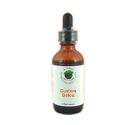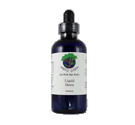 Arthropod/Vector
Bacteria
Chemicals
Fungus /Mold
/ Yeast Metals Parasites Virus Other Arthropod/Vector
Bacteria
Chemicals
Fungus /Mold
/ Yeast Metals Parasites Virus Other
|
Preservatives
Some of the most common are:
Some food and color additives have induced allergic reactions, while others have been linked to cancer, asthma, and birth defects. The FDA requires that all ingredients be listed on a food's label, but additives are often listed without specificity, as "spices" or "flavorings," making it impossible for consumers to determine what, exactly, they are eating. On the other hand, there are numerous additives that must be listed explicitly on packaging because they can cause health problems. These include sulfites, for example, which are used to prevent discoloration. The FDA estimates that sulfites cause allergic reactions in one percent of the general population, and five percent of people who suffer from asthma. Sulfite allergies can develop at any point in a person's life and can result in acute, potentially fatal respiratory distress. Recent research also points to health risks from eating nitrites, used mainly in packaged meats and also used to create a pink, color to cured meat such as sausages, bacon and hot dogs. But nitrites react with amino acids to form cancer-causing nitrosamine. A 2006 study found that people who regularly eat cured meats have a 71 percent greater chance of contracting lung disease than those who never eat cured meats. Fruit juices, marketed heavily to parents of young children, nearly always contain additives, including preservatives, artificial sweeteners and colors. A study published in The Lancet in November of 2008 looked at the effects of fruit juice additives on children's behavior, finding that, "Artificial colors or a sodium benzoate preservative (or both) in the diet result in increased hyperactivity in 3-year-old and 8/9-year-old children in the general population. In most cases, the increase was nearly 50 percent greater than that observed in children who consumed fruit juice without additives." It is quite simple, if you can't find the item in nature, don't use it! |
|



